І. Съдържание
Моля те, владичице, най-прекрасна сред смъртните градове, опора и седалище на Персефона, която обитаваш бреговете на овцехранния Акрагант и благоустроения му хълм, да приемеш този венец, който славният Мидас донесе от Пито, както и него самия, победил с изкуството си Гърция (1-7).
Това изкуство откри някога Атина Палада, като изплете в песен смъртния плач на дръзките Горгони. Тя чу този плач да се лее със скръбен стон от девичите [на Горгоните] и от непристъпните им змийски глави, когато синът на Даная Персей унищожи една трета част от сестрите и донесе съдбата на морския Серифос и на народа й. И наистина, след като грабна главата на хубавобузата Медуза, той унищожи божествения род на Форк и превърна в мрачен дар за Полидект робството и насилното ложе на майка си. За него ние твърдим, че е роден от самоизляло се злато (8-17).
Но след като девицата [Атина] избави от тези битки обичния си мъж, тя създаде всегласна песен на флейта, за да може да изобрази гръмогласния стон, изпълзял от мощните челюсти на Евриала. Откри го богинята; и го даде на смъртните мъже и нарече го номос на "много глави" като славен спомен за състезанията, които раздвижват народите. И той се промъква през тънкия бронз и тръстиките, които растат край хубавоземния град на Харитите и в храма на Кефисос - верни свидетели на хористите (27).
Дори да има някакво щастие сред хората, то не се явява без мъка; и божеството може да го довърши даже и днес. Съдбовното е неизбежно. Но ще дойде това време, което ще удари някого ненадейно и противно на мислите му. Едно ше даде, а друго не още (28-33).
Превод на:
http://literaturasu.blogspot.com/2007/11/blog-post_15.html
ІІ. Коментари
This is an early ode: the victory was won either in 494 or 490. It
was to be sung, it would seem, at Akragas, and very probably in a
procession to the shrine of the tutelar divinity of the city, with an
address to whom it seemingly begins, though it is difficult to say
what degree of personification is intended.
(E. Myers)
Midas of Akragas, a famous aulêtês, master of the Athenian Lamprokles, who in his turn taught Sophokles and Damon, was victorious in aulêsis twice, Pyth. 24 and 25, and likewise, according to the Scholia, at the Panathenaic games. We do not know positively for which of the two victories at Pytho this poem was composed; but if Pindar had been celebrating the second victory, he would, according to his usual manner, have mentioned the first. If this is the first victory, the poem belongs to the same year with P. 6 (494 B.C.), in which Pindar celebrated the success of another Agrigentine, his friend Xenokrates, brother of Theron, and we have in P. 12 one of Pindar's earliest odes.
The contest in aulôidia (song with flute accompaniment) was abolished at the second Pythiad, and the game at which Midas won was the psilê aulêsis. The antique aulos, like the old English flute, was a kind of clarionet, with a metallic mouth-piece, and one or two tongues or reeds. Midas had the ill-luck to break the mouth-piece of his flute, but continued his playing, to the great delight of his audience, and succeeded in winning the prize.
The poem is constructed on the usual Pindaric lines. It announces the victory, tells of the origin of flute music, the invention of the tune called kephalan pollan nomos (polukephalos nomos), and returns to the victor with some not unfamiliar reflections on moil and toil linked with prosperity.
According to Mezger, epheure, v. 7, and heuren, v. 22, which mark beginning and end of the myth, show the tendency of the poem. The value of the victory consists in its having been gained in an art invented by Athena.
Mezger notices a resemblance to O. 3 in the handling of the myth. In both poems the person of the victor is brought into connection with the centre of the mythical narrative -- the olive there, the polukephalos nomos here.
(B. L. Gildersleeve)
Pindare commence cette ode par une invocation à la nymphe qui avait donné son nom à la ville d'Agrigente, patrie du vainqueur. De là, il remonte à l'invention de la flûte par Pallas, dite aussi Minerve, déesse de la guerre et des arts. Minerve, avait hérissé de serpents la tête de Méduse, fille de Phorcys, ou Phorcus, violée dans son temple par Neptune. S'étant ainsi vengée de ce dieu, elle épargna moins encore Méduse, lorsqu'elle eut à s'en plaindre ; car elle aida Persée à couper la tête de cette Gorgone. Notre poète, dans sa Xe Pythique, avait déjà parlé de cette expédition de Persée vers les champs Hyperboréens, où étaient les trois Gorgones, filles de Phorcys, à savoir Sthéno Euryale et Méduse. Il raconte ici plus en détail comment Polydecte, qui avait reçu dans son île de Sériphe Danaé, fille d'Acrise roi d'Argos, et enceinte de Persée (Persée avait été conçu du sang de Jupiter, qui, pour approcher Danaé, fille du roi d'Argos, s'était métamorphosé en une pluie d'or), retint dans ses bras la mère, pour se payer des frais de l'hospitalité. Il ajoute que Persée devenu grand réclama la liberté de sa mère. Le roi Polydecte la lui promit, dans un festin où chaque convive lui avait apporté un présent, mais à condition que ce jeune héros rapporterait dans Sériphe la tête monstrueuse de Méduse. Persée, secondé par Pallas, trancha en effet la tête à Méduse et apporta ce présent funeste au roi, qui fut changé en pierre ainsi que tous ses sujets, à l'aspect du monstre ; et par ce moyen, Persée arracha sa mère à une odieuse servitude. Minerve, pour perpétuer ce souvenir, inventa l'instrument composé de plusieurs tuyaux, dont les sons semblaient imiter les sifflements variés des nombreux serpents qui composaient la chevelure de Méduse. Telle fut l'origine de la flûte, dont les matériaux furent dans la suite l'airain et les autres métaux comme aussi les joncs, dont les plus vantés furent pris sur des bords du Céphise, fleuve du territoire d'Orchomène, séjour des Grâces, ainsi que Pindare l'affirme dans la XIVe Olympique et ailleurs. On voit par là que cette dernière ode Pythique contient peu de faits personnels à Midas. Cependant le scoliaste nous apprend ce que sans doute il savait par tradition que Pindare, vers la fin de cette ode, fait allusion à une circonstance particulière de la victoire de Midas, «la rupture de l'embouchure de la flûte de ce joueur, au milieu de l'exercice». Cette circonstance, dit le scoliaste, ne déconcerta pas le vainqueur qui, malgré cet accident, sut tirer un tel parti des tuyaux qui lui restaient qu'il étonna tous les auditeurs et qu'emportant le suffrage des juges, contre tout espoir, il fut couronné. Ainsi, ajoute le poète, la destinée des humains dépend de la volonté des dieux, mais en même temps des efforts de l'homme, qui sont couronnés ou non de succès selon les lois du destin.
(R. Tourlet)
About the Latin Academy in the Vatican
13 years ago
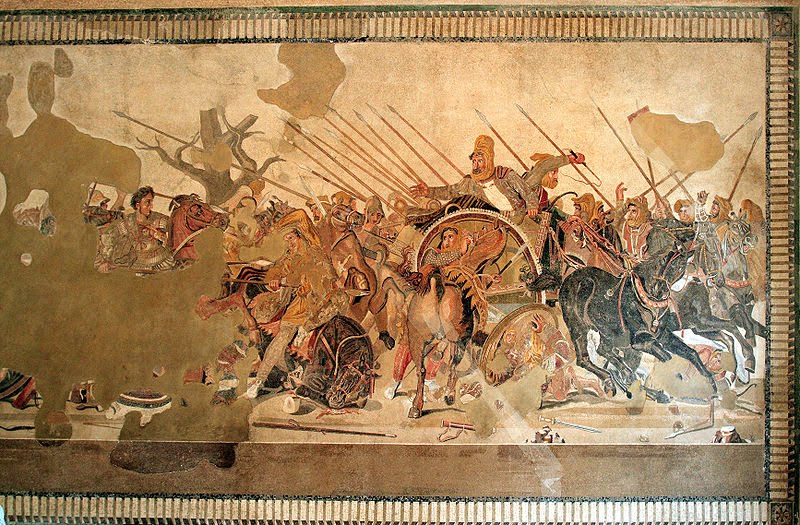
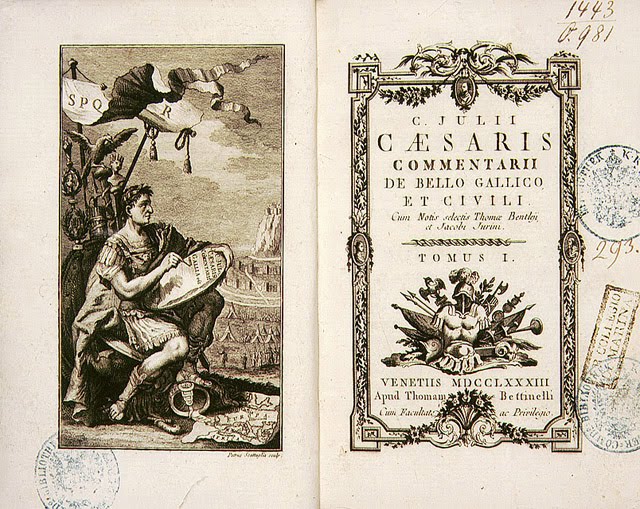
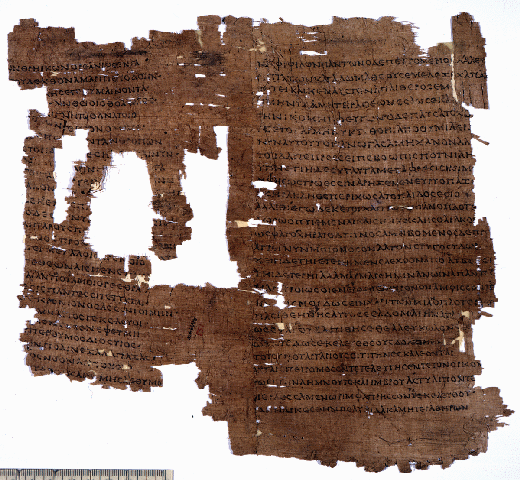
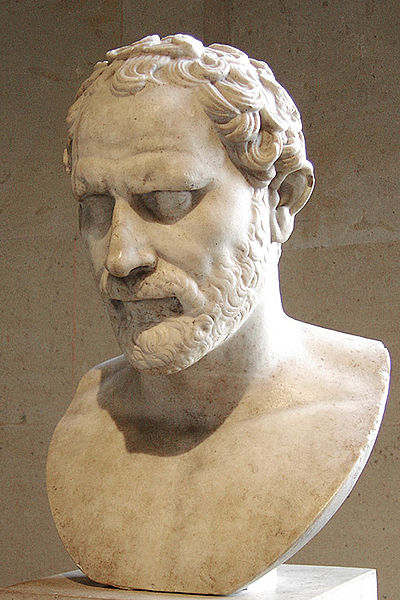


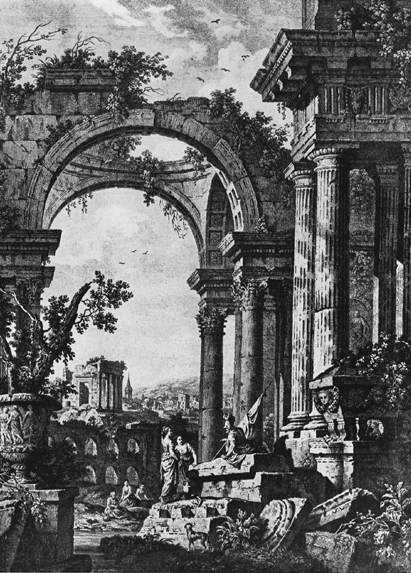




No comments:
Post a Comment